HAC Announces Beneficiaries for Accessible & Universal Design Workshop Series
In rural areas, approximately one in three adults lives with a disability. Rural America also has a higher proportion of older residents than the nation as a whole. There is a pressing need to address the unique housing challenges facing these vulnerable populations. To empower rural communities with the necessary skills and expertise to do just that, we are excited to share that HAC has chosen 30 individuals from 27 organizations to participate in our exclusive Accessible and Universal Design workshop series.
Thanks to funding from the U.S. Department of Housing and Urban Development, this workshop series aims to equip participants with the latest tools and best practices tailored to address the unique challenges faced by rural communities. Shonterria Charleston, HAC’s Director of Training and Technical Assistance, emphasized, “rural residents living with disabilities encounter various obstacles. In recognition of Disability Pride Month, HAC is pleased to offer the Accessible and Universal Design Learning Series. This series is designed to highlight essential resources, expand capacity, and enrich expertise that empowers rural communities to implement inclusive housing programs that address the needs of all residents.”
A summary of the selected participants and the list of awarded organizations can be found below.
Workshop Series Summary
The Housing Assistance Council’s (HAC) Accessible and Universal Design workshop series is an opportunity to learn how housing activities can address the accessibility, mobility, and design needs of every client. This series will provide 30 housing professionals with the foundation, skills, and real-world examples needed to design and reimagine housing programs that support the changing needs of clients at every stage of life.
Through the learning series, HAC will guide participants on integrating accessible and universal design principles into their housing design and construction activities. By focusing on factors such as accessibility, mobility, and design flexibility, attendees will gain valuable insights on how to meet the diverse needs of community members.
Selected Organizations
- Alaska Community Development Corp
- Bishop Sheen Ecumenical Housing Foundation, Inc.
- CAC of Fayette County
- Caroline County Habitat for Humanity
- City of Excelsior Springs
- Community Outreach Housing
- Community Ventures
- Confederated Tribes of the Umatilla Indian Reservation (2 participants)
- Fauquier Habitat for Humanity
- Habitat for Humanity of Portage County (2 participants)
- Habitat for Humanity of Wisconsin River Area
- Impact Educational and Housing Development
- Kent Attainable Housing, Inc.
- Lakeway Area Habitat for Humanity
- Mountain Projects, Inc.
- MS Delta Housing Program, Inc.
- PathStone Corporation
- Penquis CAP
- Pensacola Habitat for Humanity (2 participants)
- Project BEE
- Purple Heart Homes
- Red Cliff Chippewa Housing Authority
- RUPCO, Inc
- Rural Alaska Community Action Program, Inc., (RurAL CAP)
- Southside Outreach Group, Inc.
- TCAC Tennessee’s Community Assistance Corporation
- Transylvania Habitat for Humanity

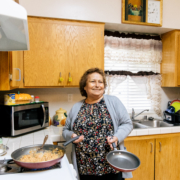
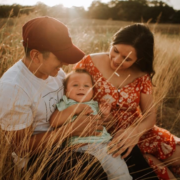
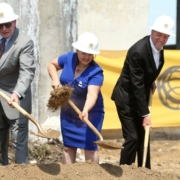
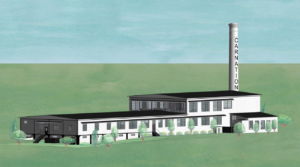 The Carnation Milk plant in Tupelo, Mississippi, has sat vacant since 1972. In about a year, that will change when 33 low-income senior households move into new affordable homes in this old factory. This May, Old Historic Carnation, LP broke ground on Carnation Village, a $16.8 million adaptive reuse project to convert the abandoned factory into 33 units of affordable senior housing. These units are sorely needed in Tupelo, a high-poverty community which needs over 1,500 additional senior affordable housing units. With a $325,000 loan from The Housing Assistance Council (HAC)—and two sixth-month extensions to that loan—the developer successfully navigated a predevelopment process mired in construction cost increases and unexpected funding gaps. Here’s how:
The Carnation Milk plant in Tupelo, Mississippi, has sat vacant since 1972. In about a year, that will change when 33 low-income senior households move into new affordable homes in this old factory. This May, Old Historic Carnation, LP broke ground on Carnation Village, a $16.8 million adaptive reuse project to convert the abandoned factory into 33 units of affordable senior housing. These units are sorely needed in Tupelo, a high-poverty community which needs over 1,500 additional senior affordable housing units. With a $325,000 loan from The Housing Assistance Council (HAC)—and two sixth-month extensions to that loan—the developer successfully navigated a predevelopment process mired in construction cost increases and unexpected funding gaps. Here’s how: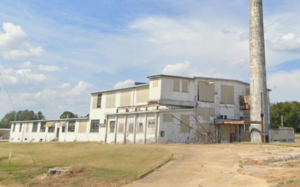 The original project scope called for 50 units: 25 from an adaptive re-use of the plant itself and another 25 in a second building to be constructed next door. When our loan closed in July 2021, the project budget totaled about $12.7 million, to be funded by Low Income Housing Tax Credits, Historic Tax Credits, and a $1.6 million equity investment. Our financing covered the predevelopment costs of the work required to get to construction financing closing including environmental testing, historic preservation approvals, tax credit application and reservation fees, a market study, and an appraisal.
The original project scope called for 50 units: 25 from an adaptive re-use of the plant itself and another 25 in a second building to be constructed next door. When our loan closed in July 2021, the project budget totaled about $12.7 million, to be funded by Low Income Housing Tax Credits, Historic Tax Credits, and a $1.6 million equity investment. Our financing covered the predevelopment costs of the work required to get to construction financing closing including environmental testing, historic preservation approvals, tax credit application and reservation fees, a market study, and an appraisal.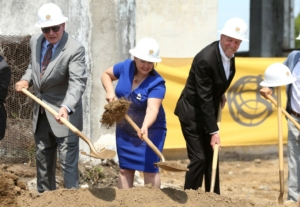
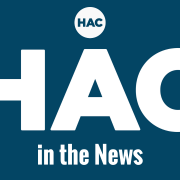
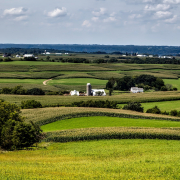
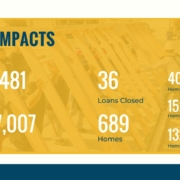

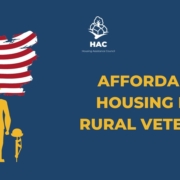 Housing Assistance Council
Housing Assistance Council